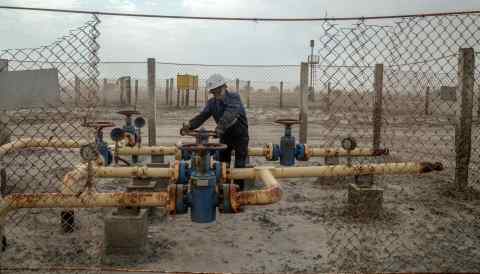QARSHI, Uzbekistan -- On an unseasonably mild spring afternoon, second-generation farmer Diyor Juraev gathered a group of worried growers in a wheat field outside Qarshi, a city in southern Uzbekistan.
They came looking for answers from a U.N. Food and Agriculture Organization (FAO) delegation to an existential problem for the country's farmers: After decades of poor irrigation in an arid land, sharply increasing deposits of salt are tainting the soil where they grow wheat and water-intensive cotton, the main Uzbek cash crop.








.jpg?width=240&height=137&fit=cover&gravity=faces&dpr=2&quality=medium&source=nar-cms)
